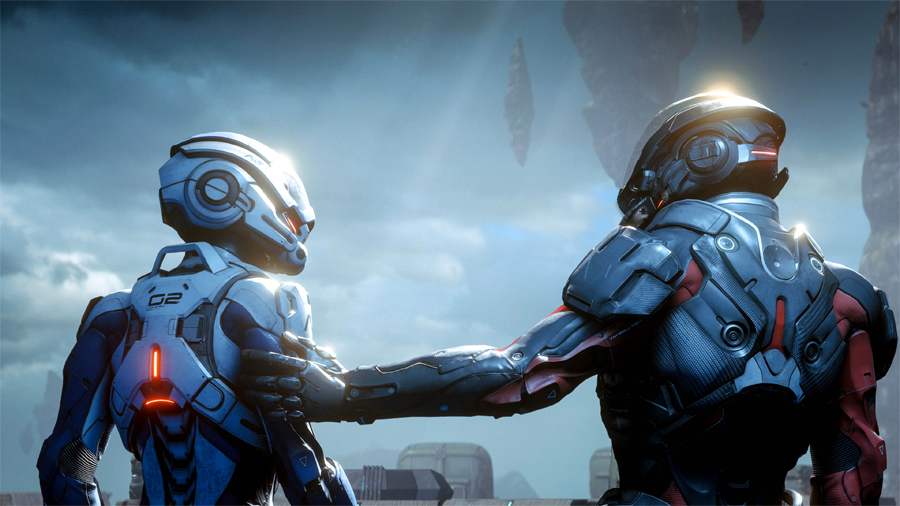
Of all the issues with Anthem laid out in our review, the one thing that dragged me down the most was not having any control over who my quippy, action hero javelin pilot was. Not only are they poorly written, you don’t get to define anything about their motivations or personality through the choices you make.
I remember who Trent Ryder was. I remember the conversations he had with his mother on her deathbed. I remember the adventures I took him on in the Andromeda galaxy and the ways I got to shape his values and interactions with his crew. And with the world of Bastion already in my rear view mirror (for now), I’m only reminded how eager everyone seemed to forget Mass Effect: Andromeda ever happened.
Andromeda wasn’t just good in comparison to Anthem. It’s a legitimately good RPG, and Anthem’s flaws only serve to accentuate why. The forgettable, on-rails story and nonexistent character development we slog through between shutting down Shaper relics highlights Andromeda's messy but glorious mane of choice, personality, and meaningful relationships. Spiritually and practically, Andromeda is a BioWare game in a way that Anthem just isn’t.
In a world...
With every new series, Anthem included, BioWare always creates huge, complex, seductive worlds. I love discovering what I can about their inner workings, whether it’s the riddle of the Golden City in Dragon Age or the mystery of the Reapers in the original Mass Effect trilogy. It's easy to forget Andromeda also had it going on in this department.

Finding out what exactly was going on with the Scourge and the Remnant drew me from planet to planet and into the black, enigmatic depths of each vault. As an inexplicable energy cloud permeating the galaxy tied to an ancient advanced civilization, how could I not read every text box and survey every single affected system for any minor clue about its origins?
It was a new mystery with similar weight, if not the same level of dread and menace, as the one kicked off by Sovereign’s infamous speech from Mass Effect 1. And it made all the more tragic the announcement that the planned Andromeda DLC had been cancelled and Mass Effect was going into hibernation.
Likewise, unravelling the origins and intent of the hostile, exoskeletal Kett and their role in the larger diplomatic context of this new galaxy was a personal mission, a drive that wouldn't exist without BioWare’s talent for nuanced world-building.
The biggest gaming news, reviews and hardware deals
Keep up to date with the most important stories and the best deals, as picked by the PC Gamer team.
There were plenty of complaints floating around that Andromeda felt too empty, and only meeting two new races seemed limiting compared to the menagerie the first game treated us to. But I saw this as a foot in the door, the scaled-down pilot episode giving us a tiny glimpse of a massive new galaxy.
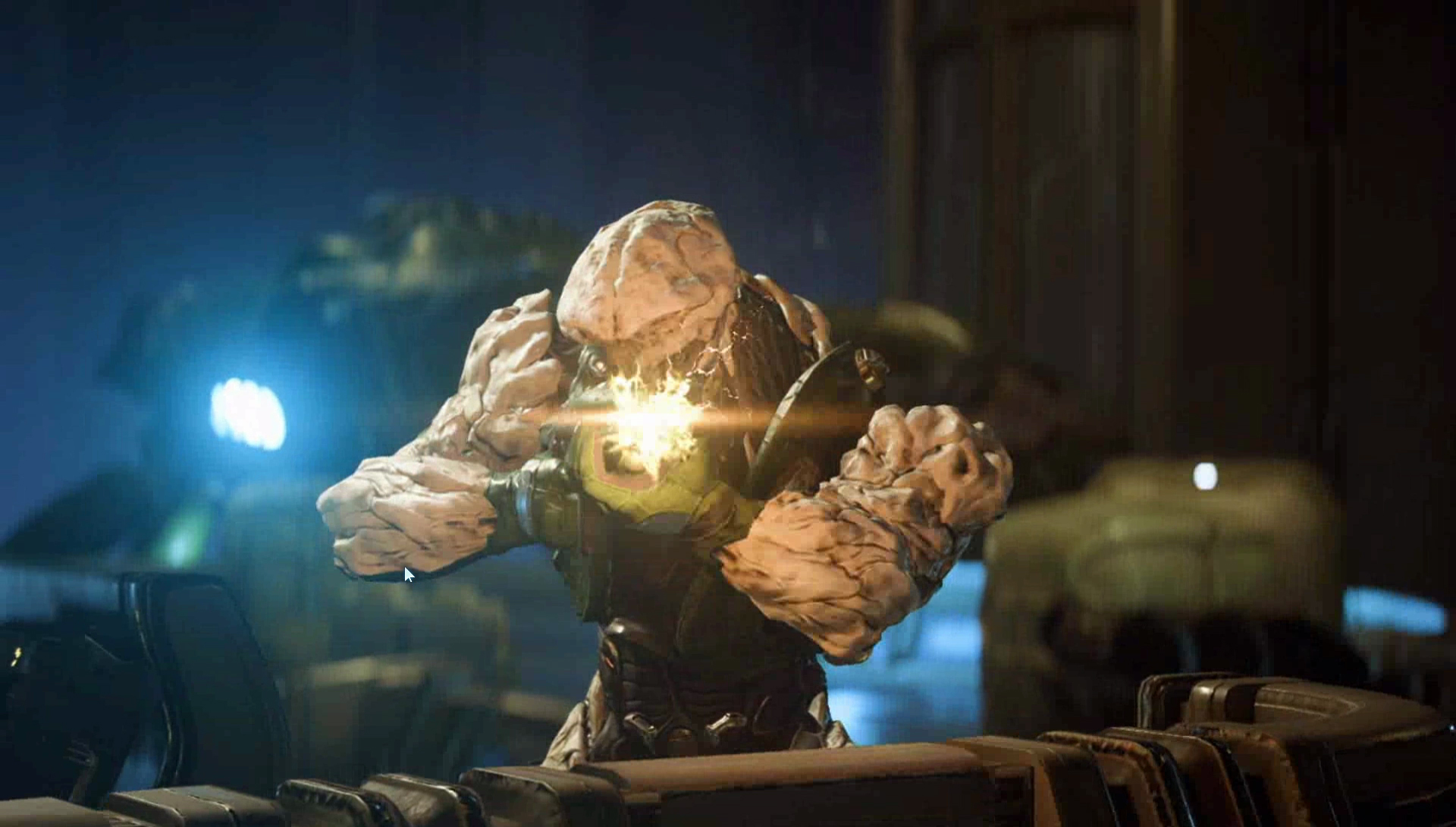
How do we know the corner of Andromeda we’re in is even important? Maybe it’s just a backwater, which is why this loose cannon Kett commander got sent here in the first place. Maybe we’re sitting on the edge of a much larger, much more complicated diplomatic soup and only fail to realize it because we’ve been tricked into thinking we landed in the middle of the action. I didn't see it as a lack of content, but as the tip of an iceberg. Andromeda felt like the first arc of a much larger story of sci-fi shenanigans, and it left me hungry to know what was going on beyond the bounds of its map.
Andromeda’s jet-packing, flanking, shooting, and grenade-chucking feels spot-on.
Through all of this, I got to know Ryder and his crew. They didn’t inspire the kind of lifelong love I developed for my Shepard and the gang on the Normandy, but they were a good bunch.
Peebee was fun and endearing, and Jaal was a welcome and fresh perspective as the first extragalactic ally. I never tired of chilling with Liam in the hold and reminiscing about home, Drak and Kesh proved that the oft-stereotyped Krogan are anything but stereotypical in reality, and the tension between Kallo and Gil was one of the most refreshing personality-driven side stories in the series.
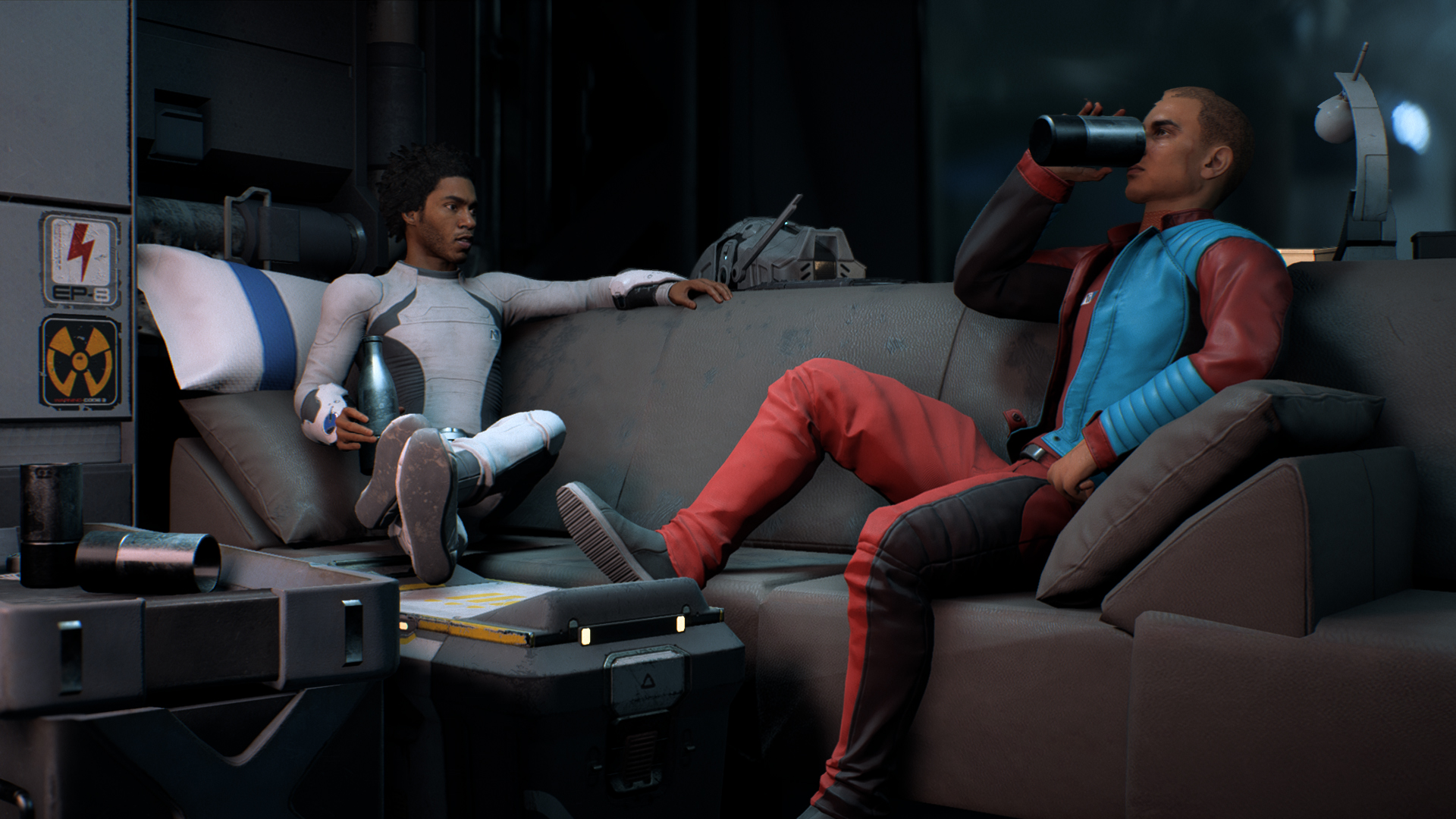
It's about two people who didn't get along because of their own insecurities, and I had to find a way to remind them they were on the same team. It was something I've dealt with in real life, lending some authenticity to the group dynamics in a way a lot of grandiose sci-fi stories will never slow down enough to do.
While trying to keep the peace between these crazy kids, I uncovered my family’s heartbreaking past, fought to save my sister, and decided what my—and humanity’s—future would look like in this galaxy. The flashbacks to Ryder's mother on a hospital bed make them a more vulnerable and grounded character in some ways than Shepard was. Discovering how it all connected to Papa Ryder's participation in the Andromeda Initiative even lent some posthumous sympathy to the otherwise underdeveloped Ryder patriarch.
True aim
Andromeda also has the best combat in the series. I still have a soft spot for the original Mass Effect, as messy and stuck in 90s-RPG design as it was, but Andromeda’s jet-packing, flanking, shooting, and grenade-chucking feels spot-on. Combat is precise and active. Abilities and weapons feel effective and impactful. Movement finally hit that sweet spot after being too limited in Mass Effect 1 and 2 and too floaty and imprecise in Mass Effect 3.
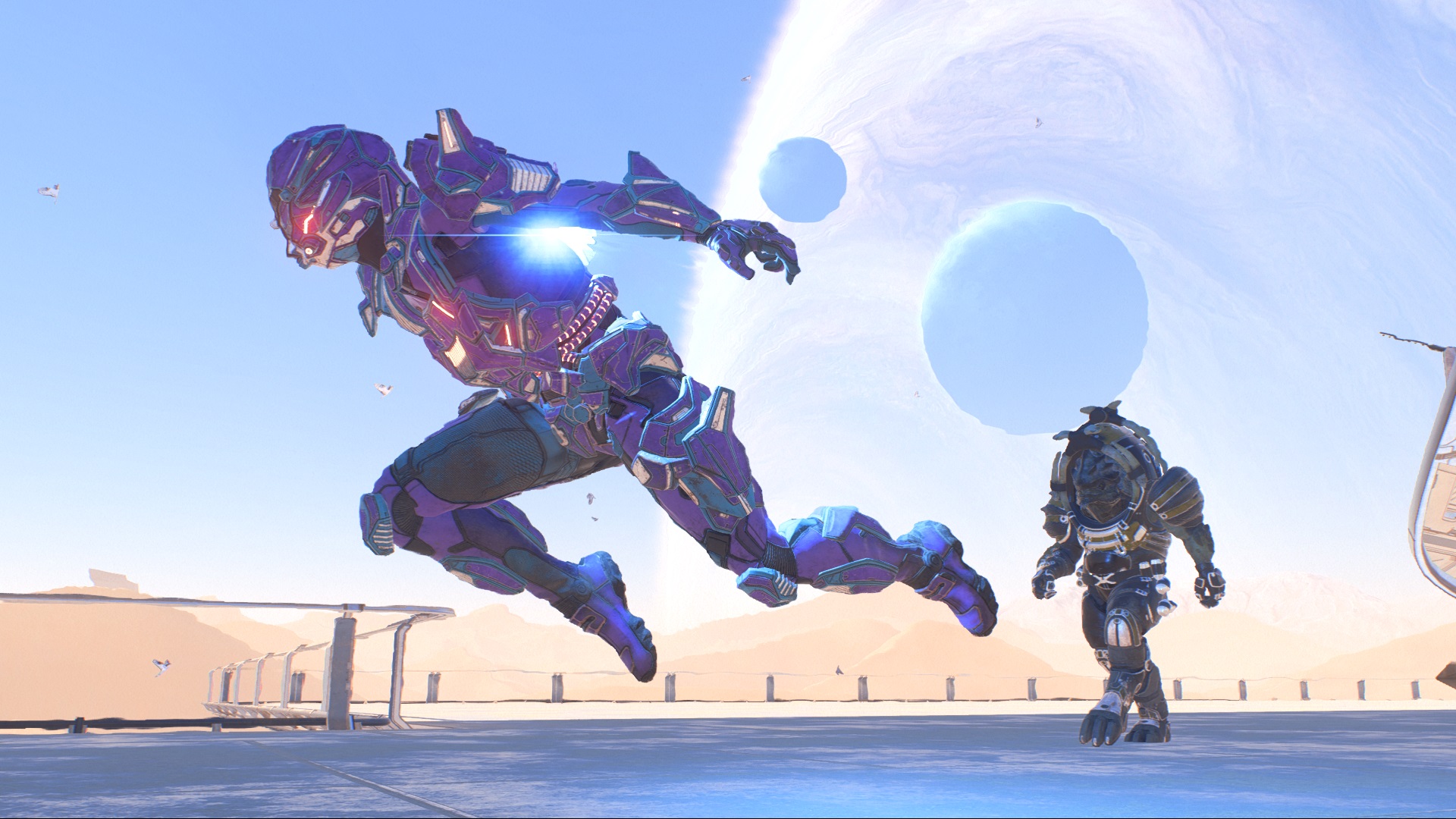
As an action shooter RPG, Andromeda's firefights just have so much more going on than its predecessors. All that jumping also laid the groundwork for Anthem’s kinetic combat too, one of its few redeeming features, even if the enemy factions and loot systems don't do much with it.
I know Andromeda isn't perfect. It’s the worst Mass Effect game if taken as a whole. The bigger choices you can make don’t feel as important in the long run. Several of the side characters I didn’t name were so forgettable that I had to look at a wiki to remember who they were. A lot more could have been done with the idea of first contact, and it was a waste to create a scenario where the Kett would always end up hostile and the Angara would always end up friendly. Some of the combat arenas were poorly designed. I'm not ignoring its problems.
But Andromeda only suffers in comparison to other Mass Effect games, not in comparison to all video games, or even all RPGs. If Andromeda had been released absent of any expectations in 2006, instead of the first Mass Effect, I’m confident it would have been heralded as an instant classic.
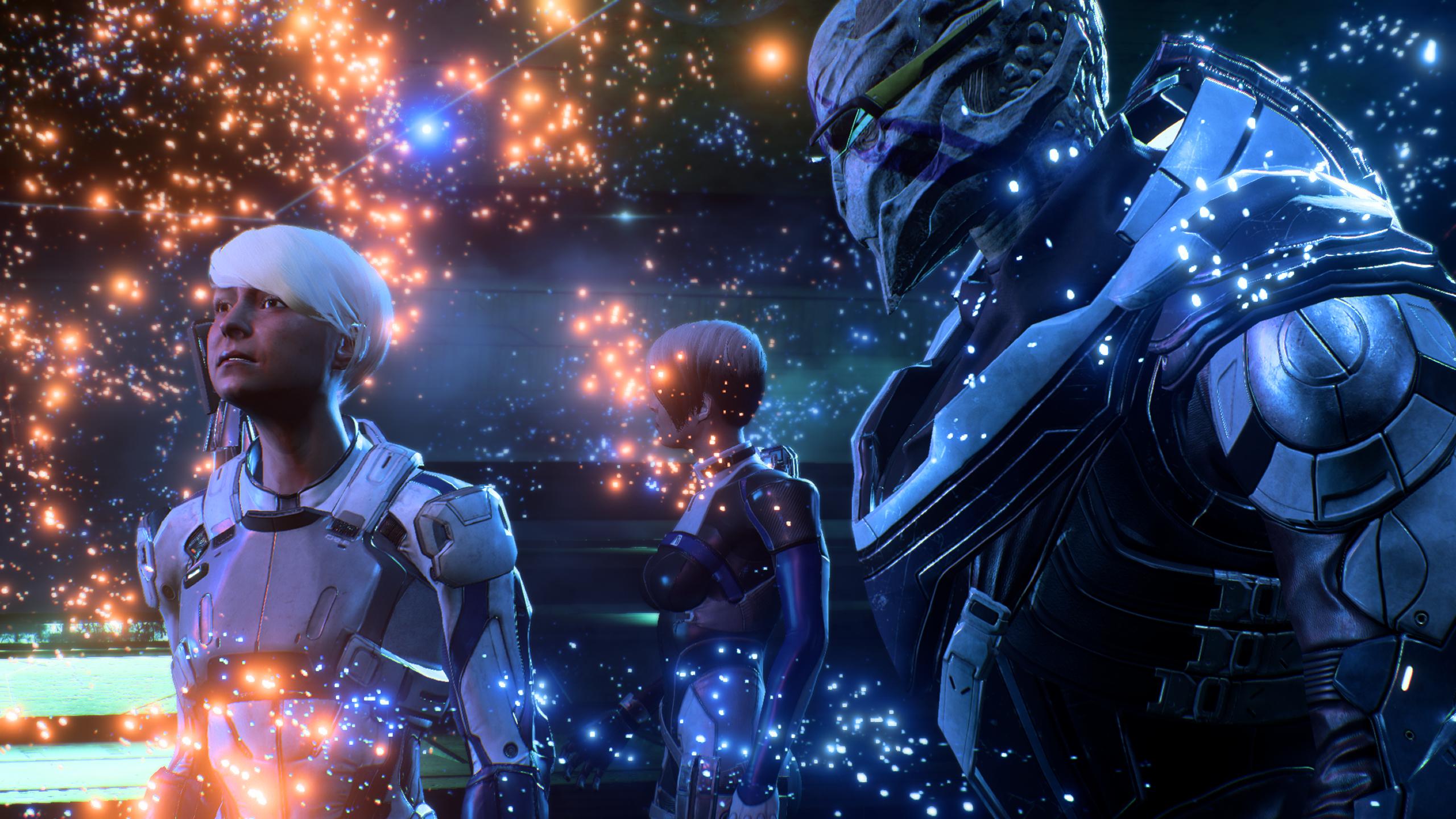
Being the worst Mass Effect game is like being the worst athlete at the Olympics. Sure, you’ll get teased by armchair biathlon experts because you’re on the lower end of a list including the best athletes in the world. Feel free to remind them that there are roughly 7 billion people who couldn’t get anywhere near your level. This is the unenviable position of Mass Effect: Andromeda.
I mean, expectations were extremely high: BioWare is a beloved studio with a great track record for putting out massive RPGs and Andromeda had to follow up a sensational sci-fi trilogy. Andromeda could easily compete, but it wasn't going home with any medals.
My hope is that we haven’t seen the last of Ryder or the Andromeda galaxy’s tantalizing mysteries.
I don't know if time will be as kind to Anthem. It could've really taken some cues from its predecessor, and I’m glad to see the trickle of Andromeda nostalgia starting to finally glimmer through now that we’ve seen what a true failure of a BioWare game looks like.
I can be realistic about its flaws and still say I’d buy and devour ten more games just like Mass Effect: Andromeda—happily!—before I’d put another ten hours into Anthem in its current state. The sweeping, cinematic BioWare RPG formula we’ve been treated to since Knights of the Old Republic just works for me. There might be an off season now and then, like in most of my favorite TV shows, but I’m sure as hell still going to own the box set.
My hope is that we haven’t seen the last of Ryder or the Andromeda galaxy’s tantalizing mysteries, and that maybe the Anthem team will incorporate some of what made it such a worthwhile experience into their own future updates. If you’re among those RPG fans who haven’t given Andromeda a try due to the negative reaction at launch, take it from me: make that jump. I think you’ll be pleasantly surprised.
Len Hafer is a freelancer and lifelong PC gamer with a specialty in strategy, RPGs, horror, and survival games. A chance encounter with Warcraft 2: Tides of Darkness changed her life forever. Today, her favorites include the grand strategy games from Paradox Interactive like Crusader Kings and Europa Universalis, and thought-provoking, story-rich RPGs like Persona 5 and Disco Elysium. She also loves history, hiking in the mountains of Colorado, and heavy metal music.

